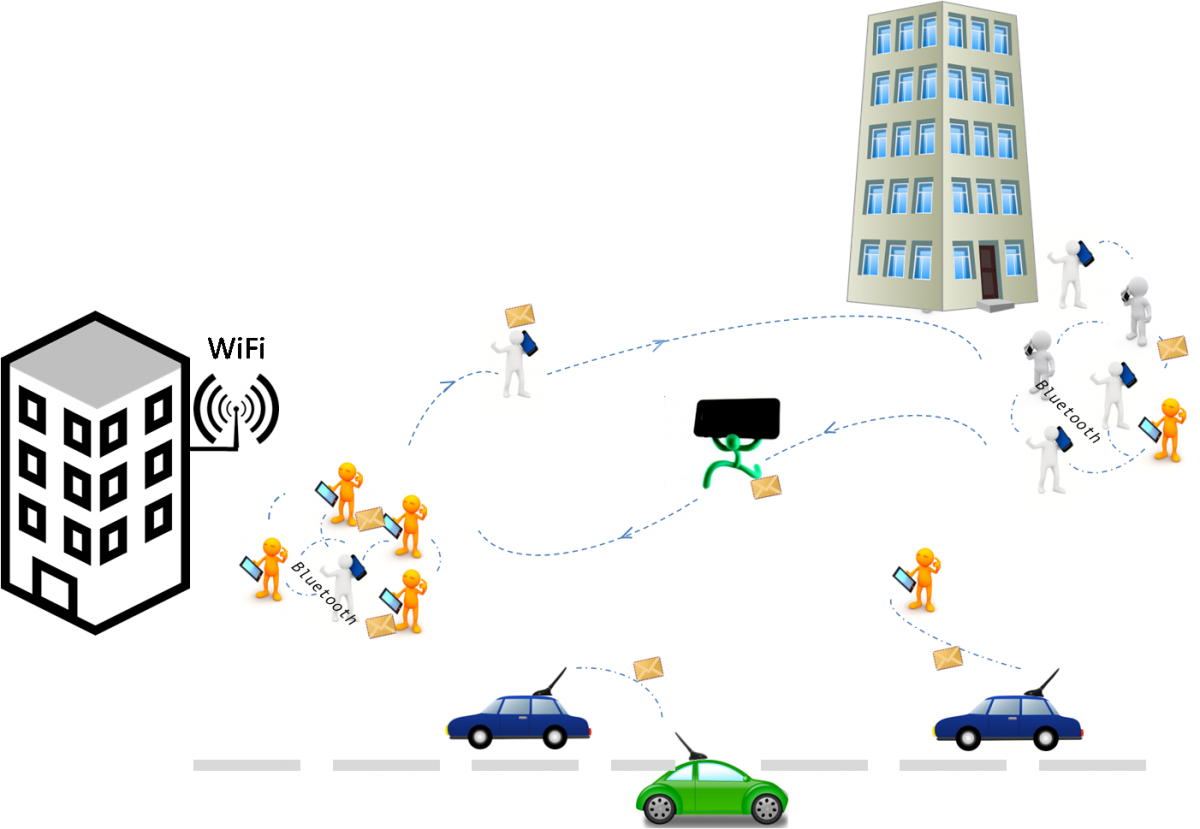Transport and Routing Protocols for Wireless and Mobile Ad hoc Networks
TRouP WilMA is a research project selected for funding in the JCJC (Jeunes Chercheurs Jeunes Chercheuses) call of the French National Research Agency (ANR) in 2010.
Start date: October 2010
End date: September 2014

Executive summary
Next generation wireless systems must allow communications, under bandwidth constraints, between mobile and autonomous users, where any infrastructure may not exist. Let us mention two examples of the kind of networks: Personal Area Network, or Home Network, battle field and Vehicular Ad-hoc Networks (VANET). Such networks are named Mobile Ad Hoc Networks (MANET). This kind of networks addresses a certain class of societal needs, like file sharing in an adhoc way, i.e., without infrastructure, subscription or control. Owing to nodes mobility, the network topology may change
rapidly and in a non-deterministic way along time. Topology discovery, routing and messaging have therefore to be handled by the mobile nodes, thereby creating the need for efficient decentralized algorithms. However, in a decentralized environment with topology changes, these tasks are hard to solve. Indeed, wireless channels and frequent node mobility (e.g., as in VANETs) significantly reduce the time a “good” link exists, and constantly changes the network connectivity graph. As a result, wireless connectivity is volatile and usually intermittent, as nodes move in and out of range from access points or from each other, and as signal quality fluctuates. This implies that many links will be down frequently, and complete end-to-end paths often will not exist. Tactical networks may also choose to operate in an intermittent fashion for LPI/LPD reasons (low probability of interception and low probability of detection). Finally, deep space networks and underwater networks often have to deal with long propagation delays and/or intermittent connectivity, as well. These new networks are often referred to as Delay Tolerant Networks (DTN).
Today Internet architecture and protocols operate poorly in environment characterized by uncertain networking conditions, high mobility and frequent network partition. These problems are aggravated by heterogeneity in used appliances (PDAs, laptop, etc.), difference in user behaviors (highly mobile vs. static users), energy consumption constraints that result in putting communication appliances in ”off-line” state as well as various level of collaboration (collaborative vs. selfish users). The networks with such constraints are named Delay (or Disruption) Tolerant MANETs (DT-MANETs), also known as opportunistic networks. They are challenging environments for deploying efficient protocols and routing policies. The challenges of MANETs are scalability, mobility, bandwidth limitations, and power constraints. At the center of these difficulties with MANETs are issues concerning the determination of the rules (protocols) governing the communication between the entities (nodes) in the network. It is important to take into account the mobility of the nodes and the lack of a fixed topology in the network.
In this project, we aim at contributing to the design of wireless networks and Delay Tolerant Networks, focusing on transport and routing protocols, as well on giving fundamental limits given by DT-MANET capacity determination. The four specific tasks are (1) TCP for infrastructure wireless networks, (2) transport protocols and (3) routing in DT-MANETs, (4) determination of capacity of DT-MANETs.
The main characteristic and novelty of this project, apart from its goals, is the use of network coding. Network coding is a (by now popular in the research community) technique that takes advantage of linear combination of data to lower the global resources needed to transfer data in a network. This technique has proved to be beneficial in specific transport layer design for wireless networks and we want to investigate further its benefits for DT-MANETs.



